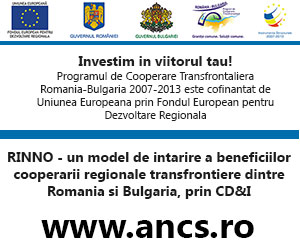FLeet Environmental Action & AssessmenT FLEAT has the objective to increase energy efficiency for different types of fleets: fleets of public authorities, public transport fleets, private fleets with mainly company cars, private fleets with mainly utility vehicles. FLEAT offers existing tools and instruments to fleet operators to increase energy efficiency in 3 fields: improve energy efficiency and environmental performance of the vehicle fleet, encourage energy efficient use of vehicles and support energy efficient use of the fleet with mobility management actions. 31 pilot actions will run in different fleets (with 8500 vehicles in total) focusing on different types of actions. The involvement of fleet operators will be ensured by networking activities in which the international Fleet Expert Committee is an important body. Toward policy makers FLEAT will summaries and disseminate effective policy instruments for supporting more energy efficient fleets. Pilot actions will run in Belgium, Austria, Italy, Germany, the Netherlands and Greece. A direct reduction of 21 kton CO2 is targeted, the multiplier effect is estimated to be 0.25 Mton CO2 reduction.
FLEAT focuses on the reduction of energy consumption and CO2-emissions of fleets. The share of fleet activities in total transport activities is increasing. ‘Private mobility’ and ‘fleet mobility’ are different: the fleet operator responsible for the purchase is different from the user of the vehicle, who does not carry the costs. This makes it difficult to influence energy efficient purchase and mobility behaviour. On the other hand, a fleet is managed centrally and this creates opportunities for more energy efficient fleet management. Fleets can inspire private drivers following the ‘learn by lead’ principle towards energy efficient transport behaviour.
FLEAT develops an integrated approach to energy efficient fleet management and builds further on results of other projects in related fields. FLEAT targets different types of fleets: public fleets of regional or local administrations, private company fleets with utility and/or lease vehicles and public transport fleets. The approach to improve energy efficiency and lower greenhouse gas emissions of these types of fleets is different, but synergies exist and will be exploited in the FLEAT project. Until now, most projects focussed on public fleets so knowledge transfer from best practices for public to private fleets will be undertaken.
FLEAT will build knowledge on measures instruments and tools to improve the energy efficiency of vehicle fleets. In different countries, transport policy measures oriented towards fleets are implemented but the knowledge on possible measures and their effectiveness is very scattered. Several tools have been developed to support fleet owners in energy efficient fleet management. These tools will be compiled in a toolbox and tested in real fleet pilot actions. Types of measures include: green fleet purchase and procurement activities (energy efficient vehicles), mobility management measures like company travel plans (energy efficient use of fleets), energy efficient use of vehicles for example by training energy efficient driving behaviour. The effectiveness in reducing greenhouse gas emissions will be assessed and monitored following a systematic approach which allows comparisons between different types of actions. In a last stage, the knowledge and experiences built up in the FLEAT project will be transferred to different target audiences: fleet operators of private and public companies and policy makers on local, regional, national and European level.
Networking activities will guarantee that the different target audiences are met in the different stages of FLEAT: knowledge building, recruitment of pilot fleets, knowledge transfer.
http://www.fleat-eu.org/
http://www.fleat-eu.org/index.php?lang=rou






